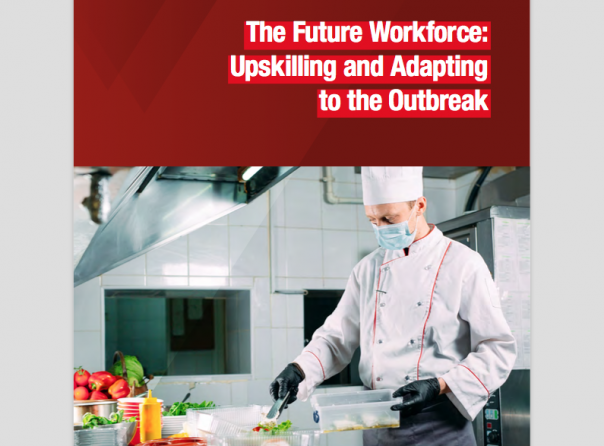
With hospitality businesses preparing to re-open from 4th July, management and operators alike are planning how teams will be affected in a post-pandemic world.
New research conducted with hospitality professionals by HIT Training and HJUK, has found that over half of the industry is looking forward to, and excited to get back, to work.
What’s more, in true-hospitality style, customer service remains at the forefront of the industry. Nearly three quarters (70%) of respondents believe that delivering customer service excellence, while keeping a safe physical distance, is the most important skill for the workforce in the future.
Speaking about the research results, Jill Whittaker, managing director of HIT Training, said: “It’s clear from these latest findings that although there is excitement around businesses re-opening on the 4th July, there is also unease within the industry regarding jobs and recruitment.
“However, it is promising to see that the sector is thinking of positive solutions to managing the workforce effectively, such as good internal communications and upskilling teams in topical areas.
“To respond to the needs of the future, all businesses will require the degree of agility that the hospitality sector is famous for. Supporting and upskilling our workforce to be ready for the demands ahead should be a key priority, so that the industry is prepared for any additional waves of COVID-19 or potential future pandemics.
“During lockdown HIT Training have been offering these courses on a complimentary basis to all employers within the sector to help the industry return safely, and stronger than ever.
“Equipping apprentices with the knowledge and skills to prepare them for working in hospitality in the midst of Covid-19 will help upskill the sector in this difficult time. It will also give apprentices and their employers the confidence that they are best placed to adapt to the new world.”
However, the enthusiasm for returning to work does not come without concerns.
Three quarters (75%) believe that their team members are worried about job security, with others concerned about how their jobs will have changed (64%), and their own personal safety (62%).
This is not surprising, as big changes are predicted. The research suggests that teams will become smaller and more dynamic, with fewer members of staff each trained in multiple areas:
- Over a third believe that teams will become smaller
- 29% say shift patterns will change to allow for social distancing between staff members
- Almost a quarter think teams will become more dynamic and members will be trained in multiple areas
These team changes are bound to influence recruitment. In fact, nearly half (40%) of the industry is freezing recruitment for the time being, a third will be employing fewer team members, and a quarter will be looking for employees with less specialisms and more expertise in multiple areas.
Although there are fears around the future of the industry, according to the research there are a number of ways the sector can combat this, including:
- Improving internal communication so everyone feels informed and up to date on policy (59%)
- Offering training on infection control and safe working (52%)
- Providing training courses on improved hygiene practices (45%) and additional support on mental health in the workplace (43%)
To help the sector return safely post COVID-19, HIT training is offering all its apprentices complimentary training to prepare them for working in the hospitality sector. These courses will equip apprentices with the skills employers have identified as key to their business and the future workforce. The courses are available for all apprentice levels and range from mental health awareness, infection control and safe working, to customer service in the world of now.